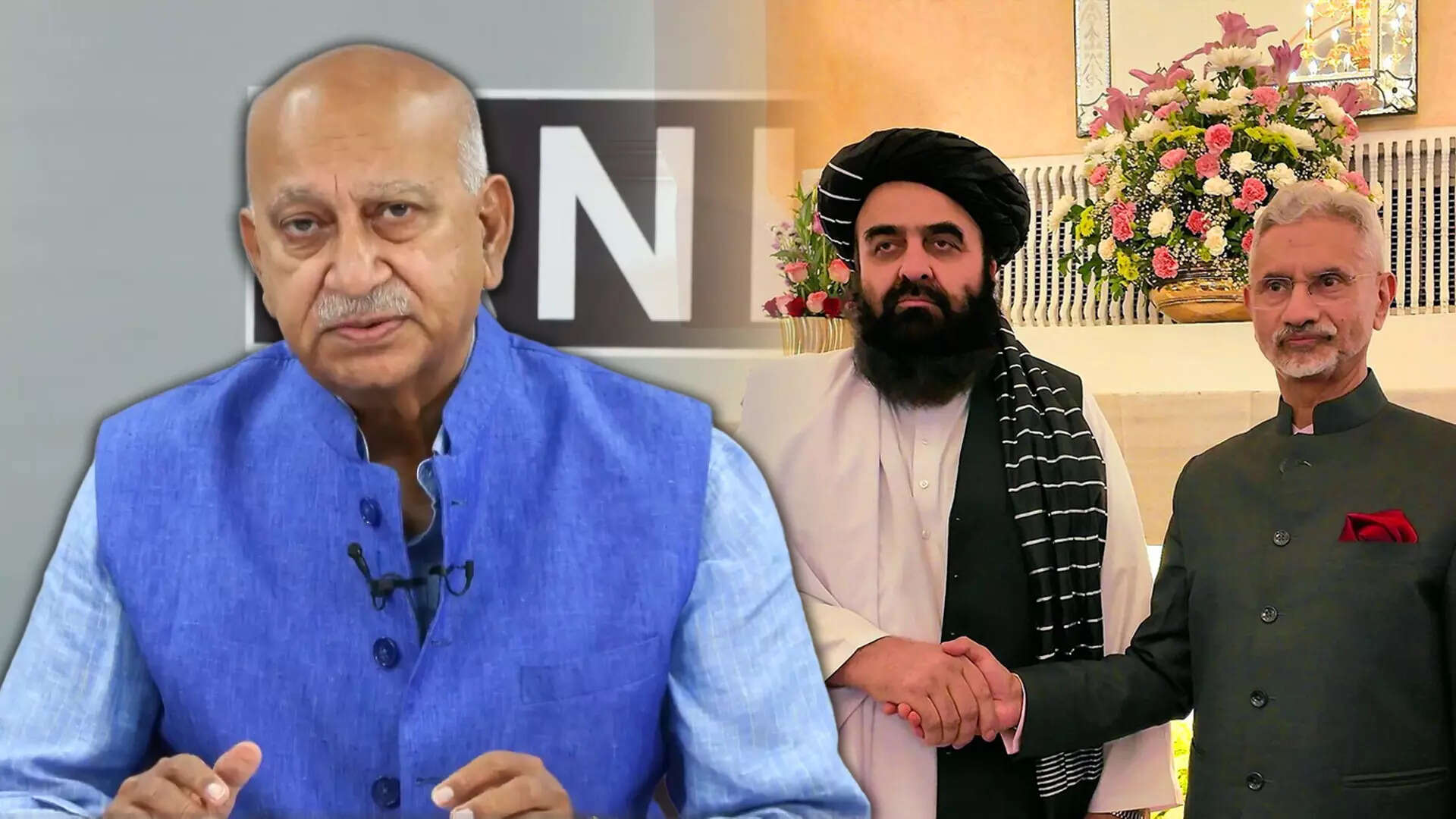Politics
Jaishankar and Muttaqi Meet, Shifting Dynamics in India-Afghanistan Relations

The recent meeting between Indian External Affairs Minister S. Jaishankar and Afghan Foreign Minister Amir Khan Muttaqi in New Delhi has marked a significant turning point in the geopolitical landscape of South Asia. This encounter signals a strategic reset in India-Afghanistan relations, with both nations exploring closer cooperation in various sectors, including security and counter-terrorism.
Analysts suggest that this development places Pakistan under considerable pressure. Historically, Pakistan has maintained a dominant influence over Afghan affairs, but the recent collaboration between India and Afghanistan may alter this dynamic. As Islamabad grapples with rising regional isolation, the implications of this meeting extend beyond bilateral relations, affecting the broader geopolitical fabric of the region.
Pakistan Faces New Challenges
The success of Operation Sindoor, which focused on enhancing security cooperation between India and Afghanistan, has contributed to Pakistan’s predicament. Experts note that while support from China and Gulf nations may provide temporary relief for Islamabad, the long-term outlook remains precarious. Internal issues, particularly in Balochistan and Khyber Pakhtunkhwa, coupled with Pakistan’s overreliance on external allies, highlight vulnerabilities that could hinder its strategic position.
This reset in relations underscores India’s growing influence in the region. Afghanistan’s commitment to ensuring that its territory is not used for activities against India further weakens Pakistan’s claims of regional dominance. The recent developments suggest a potential shift in alliances, with India and Afghanistan seeking a more collaborative approach to regional security.
Implications for Regional Geopolitics
The meeting between Jaishankar and Muttaqi reflects a broader trend of changing alliances in South Asia. As both countries enhance their cooperation, the geopolitical landscape may evolve dramatically. The potential for increased trade and investment between India and Afghanistan could reshape economic ties, offering new opportunities for both nations.
Pakistan’s traditional role as a key player in Afghan affairs may diminish as India strengthens its position. This shift not only impacts Pakistan’s influence but also raises questions about its future strategies in the region. The evolving dynamics necessitate careful observation, as the balance of power in South Asia continues to change.
In summary, the meeting between S. Jaishankar and Amir Khan Muttaqi signifies a pivotal moment in India-Afghanistan relations, with potential repercussions for Pakistan and the broader geopolitical climate. As these nations navigate their new strategic paths, the implications of their cooperation will be closely watched by regional and global observers.
-

 World5 months ago
World5 months agoSBI Announces QIP Floor Price at ₹811.05 Per Share
-

 Lifestyle5 months ago
Lifestyle5 months agoCept Unveils ₹3.1 Crore Urban Mobility Plan for Sustainable Growth
-

 Science4 months ago
Science4 months agoNew Blood Group Discovered in South Indian Woman at Rotary Centre
-

 World5 months ago
World5 months agoTorrential Rains Cause Flash Flooding in New York and New Jersey
-

 Top Stories5 months ago
Top Stories5 months agoKonkani Cultural Organisation to Host Pearl Jubilee in Abu Dhabi
-

 Sports4 months ago
Sports4 months agoBroad Advocates for Bowling Change Ahead of Final Test Against India
-

 Science5 months ago
Science5 months agoNothing Headphone 1 Review: A Bold Contender in Audio Design
-

 Top Stories5 months ago
Top Stories5 months agoAir India Crash Investigation Highlights Boeing Fuel Switch Concerns
-

 Business5 months ago
Business5 months agoIndian Stock Market Rebounds: Sensex and Nifty Rise After Four-Day Decline
-

 Sports4 months ago
Sports4 months agoCristian Totti Retires at 19: Pressure of Fame Takes Toll
-

 Politics5 months ago
Politics5 months agoAbandoned Doberman Finds New Home After Journey to Prague
-

 Top Stories5 months ago
Top Stories5 months agoPatna Bank Manager Abhishek Varun Found Dead in Well









